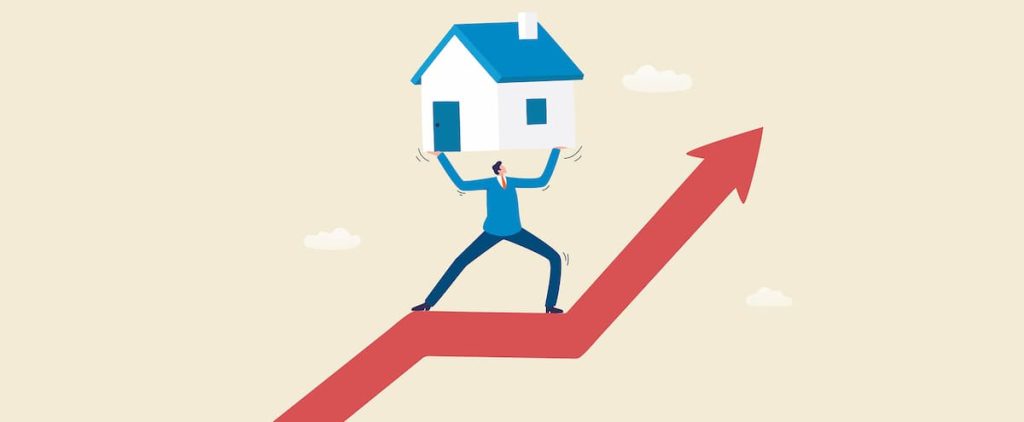
Rising mortgage interest rates hurt everyone. Louis and Julian are no exception and fear not being able to keep the family home.
The couple bought their home in the summer of 2021 for $440,000. They were able to put down a nice down payment and their mortgage now sits at $401,000.
Yes, but here’s the thing: Like many other people at the time, they chose a variable rate that was too low.
They are far from suspecting that the situation will change radically next year.
Exploding costs
Initially, their monthly payments were $1650. With the new interest rate applied to their loan, they now owe $2,250. Worse, their amortization period went from 22 to 40 years!
They were very disappointed because they had calculated that their mortgage would be paid off by the time Louis retired.
Their budget is already tight.
With two children in high school in sports-studies programs, they pay an additional tuition fee of $7,700 per year.
“And with rising grocery prices, our food budget has ballooned to $1,450 a month! ” Louis laments.
Additionally, debt on two credit cards, a personal loan and a line of credit, totaling $45,800, burdens the family’s finances, requiring monthly minimum payments of $1,240 to repay.
- Listen to Marie Montpetit’s interview with Fabian Major, Financial Planner, Wealth Management Advisor and Author QUB-Radio :
A lot of debt
Unable to cover all of these expenses due to a significant increase in their monthly mortgage payment, Louis and Julian went to consult a bankruptcy professional.
“We made a list of their debts and analyzed their budget. We find that they don’t travel, rarely go to restaurants, and don’t own unnecessary things like a trailer, ATV, etc., so there are very few places to cut. They don’t go overboard: all their money is devoted to children, sports and family,” says Pierre Fortin, a licensed bankruptcy trustee and president of Jean Fortin & Associates.
To keep their home, they have to make mortgage payments of $2,250, and given the weight of their non-mortgage debt, their situation is rapidly deteriorating.
“Debt consolidation is excluded due to their debt burden above 40%. So we suggested them other options. After careful consideration, they chose the consumer’s proposal,” explained Trustee Pierre Fortin.
The house represented less equity — the difference between the net real value minus fees and the mortgage — lenders agreed to for $24,000 in 60 installments of $400 a month, interest-free.
“To determine whether the amount offered in the consumer’s proposal is reasonable and has a good chance of being accepted by the creditors, the trustee takes into account the net realizable value of the assets, less expenses and the person’s income,” says Pierre Fortin.
From now on, Louis and Julian will be able to sleep comfortably and above all keep the family at home.
Tips
- If you’re on a fixed rate, check the maturity date of your mortgage. If this happens in the next year, calculate your new payment at a rate of 6.5%. This will give you an idea of the mortgage payment you will have to pay after the renovation.
- If you’re on a variable rate with fixed payments, make sure your payment at least covers the interest charges. Otherwise, your mortgage balance will go up, not down.
- Calculate your debt level (JeanFortin.com/ratio) to find out where you are on the debt scale. Because this ratio takes your mortgage payment amount into account, your debt-to-equity ratio will likely be higher during the renewal of your mortgage, even if your debt doesn’t increase.
- Most often, non-mortgage debts (cards, lines of credit and personal loans) prevent you from keeping your home. However, when it does not represent too much weight in the budget, it should be saved at all costs. Therefore we need to work to reduce the amount of other debts.





More Stories
Sportswear: Lolle acquires Louis Garneau Sports
REM is still innovative enough to foot the bill
A trip to the restaurant with no regrets for these customers